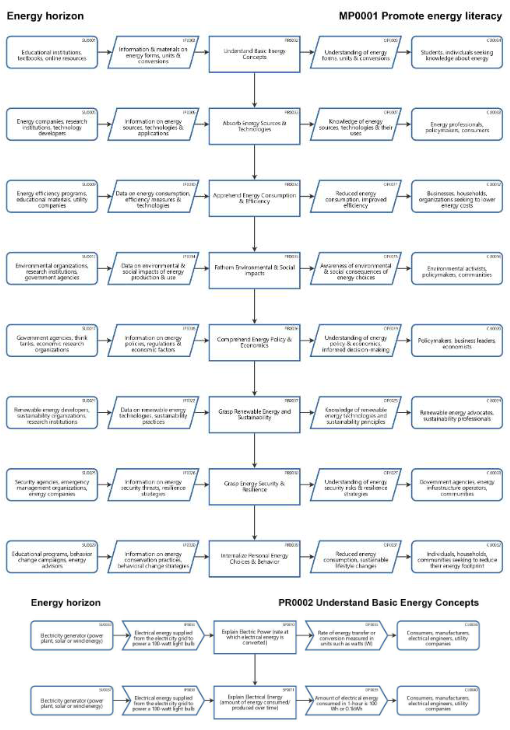Promote energy literacy

Energy literacy refers to the understanding and knowledge that individuals possess about energy-related concepts, sources, uses, and impacts.
- Basic Energy Concepts: Energy literacy involves understanding fundamental concepts such as energy forms (e.g. kinetic, potential, thermal), energy sources (e.g. fossil fuels, renewable energy), energy units (e.g. joules, kilowatt-hours) and energy conversions (e.g. from one form to another). Electric power is the power rate in watts (W) and electrical energy is the amount of energy produced or consumed over time in watts per hour (Wh) or kilowatts (kWh).
- Energy Sources & Technologies: Energy literacy includes knowledge about different energy sources (e.g. coal, oil, natural gas, solar, wind, hydroelectric) and the technologies used to harness and convert them into usable forms of energy (e.g. power plants, solar panels, wind turbines).
- Energy Consumption & Efficiency: Energy literacy entails awareness of how energy is consumed in various sectors such as transportation, buildings, industry, and agriculture. It also involves understanding energy efficiency measures and technologies that can reduce energy consumption and waste.
- Environmental & Social Impacts: Energy literacy encompasses awareness of the environmental and social impacts associated with energy production and use, including air and water pollution, greenhouse gas emissions, habitat destruction, land use changes and human health effects.
- Energy Policy & Economics: Energy literacy involves understanding energy policies, regulations and incentives at local, national and global levels. It also includes knowledge of energy markets, pricing mechanisms, subsidies, and the economic implications of different energy choices.
- Renewable Energy & Sustainability: Energy literacy includes knowledge about renewable energy technologies (e.g. solar, wind, hydro, geothermal) and their potential to mitigate climate change, enhance energy security and promote sustainable development.
- Energy Security & Resilience: Energy literacy entails understanding issues related to energy security, including dependence on foreign energy sources, geopolitical tensions, energy infrastructure vulnerabilities, and strategies for enhancing resilience.
- Personal Energy Choices & Behavior: Energy literacy extends to personal energy choices and behavior, including energy conservation practices, energy-efficient purchasing decisions, transportation choices, and lifestyle changes that reduce energy consumption and environmental impact.
By promoting energy literacy, individuals can become empowered to make informed decisions, advocate for sustainable energy policies, support renewable energy initiatives and contribute to a more sustainable and resilient energy future. Educational initiatives, public awareness campaigns and accessible resources play a crucial role in fostering energy literacy among the general population.
Using the following link you can access this sandbox SIPOC data & process model in the ProcessHorizon web app and adapt it to your needs (easy customizing) and export or print the automagically created visual AllinOne process map as a PDF document or share it with your peers: https://app.processhorizon.com/enterprises/cTdNdL4pPPnLrcqDPDqHUSLi/frontend

